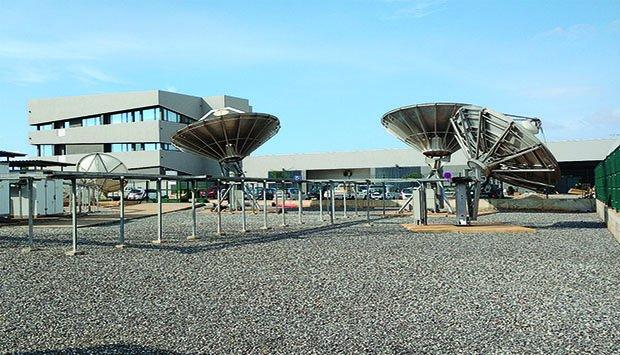Africa-Press – Angola. Angola is included in the most recent report on the 50 main emerging markets in the world, listed by the “2022 Agility Index”, to which Jornal de Angola had access, Tuesday (08).
The Index, now in its 13th year, ranks countries in terms of global competitiveness based on logistical strengths, business conditions and, for the first time, digital capability – all factors that make them attractive to providers of logistics, freight services , air and sea carriers, distributors and investors. The index includes a survey of 756 supply chain industry professionals.
Major African economies that have struggled to improve infrastructure, business conditions and global competitiveness generally perform better than other emerging markets in areas measuring digital skills and sustainability.
This is one of the findings of the “2022 Emerging Logistics Markets Agility Index”, the ranking of the world’s top 50 emerging markets. Kenya ranks 28th overall, but 17th for digital capability. Africa South, No. 24 overall, is 21st in digital capability, as is Ghana which ranks 32nd globally and 23rd in digital capability.
Digital capability assesses digital skills, training, internet access, e-commerce growth, investment conditions, and the ability to feed start-ups, as well as sustainability factors such as a range of renewable energies, lower emission intensity and green initiatives.
“The link between a country’s digital capabilities and growth prospects is undeniable,” Agility said CEO Tarek Sultan. find the determination to reduce their emissions in ways that stimulate growth rather than sacrifice it”.
The importance of digital capability was evident in the survey. Logistics executives identified technology adoption as a key driver of economic and business growth for emerging markets. Key areas of focus for your companies: technology and sustainability.
In addition to performing relatively well in digital capability, Ghana has improved its annual ranking in international logistics infrastructure (to 37th out of 45th); domestic logistics infrastructure (for 36th from 38th); and business basics (for 28th from 32nd).
Most logistics industry executives see moderate to strong economic growth and little or no chance of recession in 2022, even without immediate relief from tight supply chains and high rates of sea and air transport triggered by the Covid-19 pandemic. .
About two-thirds of the 756 industry professionals surveyed for the Index believe that carriers will see freight rates decline by the end of the year. Eighty percent see port congestion, lack of air capacity and truck transport problems to be eased by the end of the year.
“Industry optimism reflects the fact that emerging economies are becoming more resilient and finding ways to resist supply chain disruption,” says Sultan. a boost to small businesses, can help drive a broad and dynamic global recovery.” This year’s index brings highlights The index ranking presented in relation to Sub-Saharan Africa is led by South Africa, which in global control occupies the 24th position. Then comes Kenya (28), Ghana (32), Nigeria (34), Tanzania (42), Uganda (43), Ethiopia (45), Mozambique (46) and Angola (47).
China and India, the two largest countries in the world, retained their 1st and 2nd places in the overall rankings. UAE, Malaysia, Indonesia, Saudi Arabia, Qatar, Thailand, Mexico and Turkey completed the top 10. Vietnam, No. 8 in 2021 dropped to 11th place, swapping places with Thailand.
Powerhouse exporters China, India and Mexico topped the rankings for international logistics. China, India and Indonesia achieved the best results in internal logistics.
Overall Index Ranking for Latin America: Mexico (9), Chile (12), Brazil (16), Uruguay (23), Colombia (25), Peru (26), Argentina, (31), Ecuador (38), Paraguay (41), Bolivia (44), Venezuela (48).
In the Middle East and North Africa, the rankings were: United Arab Emirates (3), Saudi Arabia (6), Qatar (7), Turkey (10), Oman (14), Bahrain (15), Kuwait (17) , Jordan (19), Morocco (20), Egypt (21), Iran (30), Lebanon (35), Tunisia (36), Algeria (37), Libya (50).
Rankings in Asia show China (1), India (2), Malaysia (4), Indonesia (5), Thailand (8), Vietnam (11), Philippines (18), Kazakhstan (22), Pakistan (27) , Sri Lanka (33), Bangladesh (39), Cambodia (40), Myanmar (49), in an initiative by Transport Intelligence (TI), the leading analysis and research company for the logistics industry, compiled the Index.
John Manners-Bell, Chief Executive of TI, said that how quickly emerging markets recover from the crisis of the last two years depends heavily on how quickly the vaccine is launched, particularly from the point of view of social, economic and political cohesion.
According to the manager, at the same time, links between these economies and western markets need to be re-established so that shippers can be reintegrated into the global trading system.
Covid-19 has made shipping even more expensive, complicated and slower, especially for small and medium-sized businesses. Digitization will play an important role in facilitating frictionless cross-border movement, but in the long term the benefits of globalization will only be shared with emerging markets if supply chains and logistics can be made more resilient in the face of future crises.”
The promoters of this initiative believe that these indicators are also a focal point for measuring the market trend and the impact of reforms or transformations that are taking place internally in relation to investor sentiment.
The international recognition of Angola’s evolution, according to comments to the ranking, means that the transformations that have been implemented under the leadership of the Ministry of Telecommunications, Information Technologies and Social Communication are a local response to global challenges and that are taken into account by the major global operators.
For More News And Analysis About Angola Follow Africa-Press






